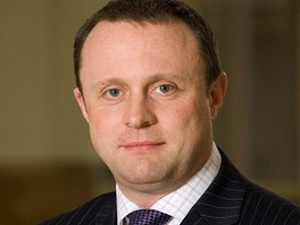
Businesses are becoming more and more strategic about storage, prioritising different types of data and looking for solutions that deliver improved efficiency at a competitive cost.
This was highlighted by Chris Johnson, HP's VP of storage for EMEA, who sat down with ITWeb this week to discuss where the storage market is headed, and to outline how HP has positioned itself to address these changes.
Johnson describes the last five years as mostly a "positively disruptive period" for HP, with a huge amount of acquisition activity. "The world may be thinking 'what is HP all about?'" said Johnson. "We have redefined ourselves as an infrastructure company, combing hardware, software and services."
When HP was looking to redefine its storage offering, the brand noticed that the architectural approach to storage was the same as it was 20 years ago, in the time of the mainframe, said Johnson. "The problem is that this environment was about predictable and stable workloads, but the move to a virtual world has made things more complicated."
As part of the brand's converged storage strategy, HP has identified three kinds of customer requirements when it comes to storing data - primary data storage, backup and archiving. Within these three areas, HP has offerings to ensure that an enterprise's data is safe, backed up where necessary, and stored for the required amount of time. "Operationally, this approach simplifies things for customers as they do not need to invest in various different technologies to manage their storage needs."
Innovation drive
When talking about storage innovation, Johnson asserts the world does not need any more platforms, but rather needs new technologies to be integrated into existing architectures. "We at HP are able to innovate because we don't have to reinvent things all the time," he said.
According to Johnson, there will continue to be a fairly steep upward curve in terms of demand for solid state drives. He describes flash memory as the next bringer of change in the market, with everyone trying to jump on the flash array bandwagon. The current expense of flash makes it an option for only the most critical applications where speed is needed, he notes.
Moving beyond flash technology, Johnson believes memory-based technology will revolutionise the storage space. "This technology will cause a huge disruption in the market, providing high-density storage at an affordable price. I really do think that memory-based technology will change the world," he says. "Dare I say that disks will eventually become a thing of the past?"
The acquisition of data analytics specialist Autonomy has formed part of HP's innovation drive, bringing next-generation business intelligence into storage, said Johnson, adding that this is part of how HP is saving the planet. In the future, HP, using Autonomy, hopes to offer strategies to make storage more efficient, by intelligently storing data, resulting in a reduction in storage needs. "There is a need to start reducing storage and there is a distinct trend towards moving data around to reduce costs," he said.
Within the EMEA region, Johnson asserts that business is not as far behind as some may think. This region is actually pretty advanced at adopting some of these storage strategies, even to the point of early adoption, said Johnson. "We are experiencing very good growth in SA, to the point that HP is battling to meet the demand."
Share